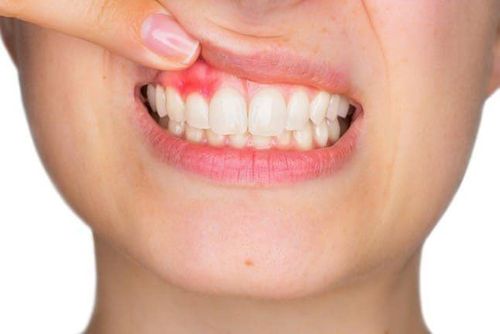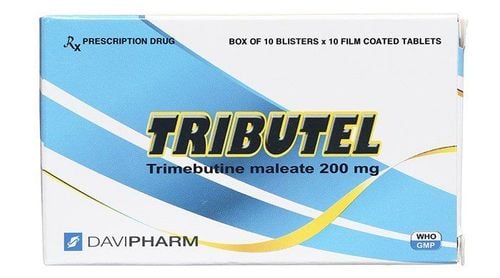This is an automatically translated article.
Suddenly your favorite food is no longer to your taste can be a manifestation of a change in taste. There are many reasons why taste changes affect quality of life. Fortunately, most cases are manageable and reversible if the cause is found.
1. Overview
When eating, the two senses in the body will work at the same time. Accordingly, the taste buds receive flavors, including four basic flavors: sweet, salty, sour and bitter. At the same time, the sense of smell allows you to enjoy the aroma of food.
Smell and taste are almost inseparable. When either problem occurs, your taste buds may change. If you love the food you are eating, you will eat enough to recharge for life activities. In addition, the sense of smell not only helps you enjoy the scent, but also has the ability to warn you of dangers - like the smell of smoke from a fire. So it's very important to find out why your taste buds change or go away.
SEE ALSO: Taste disorders: Things to know
2. Causes of taste changes
2.1. Age
As you get older, you may find it harder to recognize tastes. Some women may begin to lose their sense of taste in their 40s. For men, taste changes can occur in their 50s. In addition, taste can still decline and become less sensitive. than. Salty and sweet flavors tend to weaken first. After that, you will gradually find it difficult to taste things that are bitter or sour.

Vị giác có thể thay đổi khi tuổi càng cao
Your sense of smell may also be impaired. This sense is strongest between the ages of 30 and 60, then begins to weaken. Some seniors have even lost their sense of smell.
You can't reverse age-related taste loss, but age isn't everything. Sometimes a change or loss of taste is due to another, manageable cause.
2.2. Medicine
Prescription drugs can affect how taste buds perceive flavors. At the same time, the medicine can also introduce different chemicals into your saliva.
Taste and smell may not work properly if you are taking:
ACE inhibitors: These and blood pressure medicines that inhibit enzymes sometimes make you less sensitive to taste. There are cases where ACE inhibitors leave a metallic, bitter or sweet taste in the user's mouth. Antidepressants, antihistamines, or other medications: These medications can make your mouth dry, making it impossible for the flavors of food to reach your taste buds. Beta-blockers: These heart medications can interfere with your sense of taste and smell from working properly. If the cause of your taste changes is indeed medication, your doctor may be able to prescribe other medications that are more appropriate.
2.3. Pathological
Your taste may be affected if you have:
Nose, throat or sinus infection Head injury, which can affect the nerves involved in taste and smell A benign tumor or malignancy blocking the nasal passages Abscesses in the mouth or other oral problems. This condition can release unpleasant-tasting substances into your mouth. In addition, dentures can also be the cause of problems. In some people, changes in taste or smell can be an early sign of Alzheimer's or Parkinson's disease.

Áp xe trong miệng ảnh hưởng nghiêm trọng đến vị giác của bạn
2.4. Cancer treatment
If you are being treated for cancer, your taste buds may be affected by:
Chemotherapy: This therapy affects about 50% of patients' taste buds. Other drugs: Antibiotics, morphine, or opioids can all alter your taste buds. Radiation therapy: Radiation can damage your taste buds and salivary glands, as well as affect your sense of smell. When you eat during cancer treatment, you may notice that:
Some foods taste different than they used to. Some food is bland. Everything tastes the same. A metallic/fishy taste in the mouth, especially after eating meat or other proteins. If you experience any unusual problems, let your doctor know. Your healthcare provider will be responsible for helping you manage the side effects of cancer treatment. Once treatment is over, your taste buds will slowly return, usually over about a month.
2.5. Smoke
Cigarettes create pollution, making it impossible to identify smells and tastes that you like or dislike. If you quit smoking, your sense of smell and taste will be better2.6. Mouthwash
Some mouthwashes that contain chlorhexidine or the antiseptic metronidazole can temporarily alter taste. Usually taste disturbances can occur within 4 hours of taking these substances.

Nước súc miệng sẽ khiến vị giác của bạn thay đổi trong thời gian ngắn
3. How to protect your taste buds
Although, there is no sure way to prevent taste changes, you can protect your taste buds in the following ways:
Manage stress Patiently wait for your taste buds to return to normal after a cold or sinusitis Maintain oral hygiene and regular dental check-ups Change and diversify menus to improve your sense of taste Avoid foods or triggers that are suspected of causing taste disturbances Eat lots of fresh vegetables and fruits Treat related illness. To date, there is no specific method to treat taste disorders. However, the condition is also manageable depending on the cause. For example: Quitting smoking is a necessary factor, changing the type of medicine you are using as prescribed by the doctor,...
There are many causes of taste changes, the cause may be due to age or pathological signs. Accordingly, when you see abnormalities in taste, you should go to medical centers for a general health examination, find out the cause, and have appropriate treatment.
Periodic general health check-ups help detect diseases early, thereby planning treatment for optimal results. Currently, Vinmec International General Hospital has general health checkup packages suitable for each age, gender and individual needs of customers with a reasonable price policy.
The patient's examination results will be returned to the home. After receiving the results of the general health examination, if you detect diseases that require intensive examination and treatment, you can use services from other specialties at the Hospital with quality treatment and services. outstanding customer service.
Please dial HOTLINE for more information or register for an appointment HERE. Download MyVinmec app to make appointments faster and to manage your bookings easily.
Reference source: webmd.com













